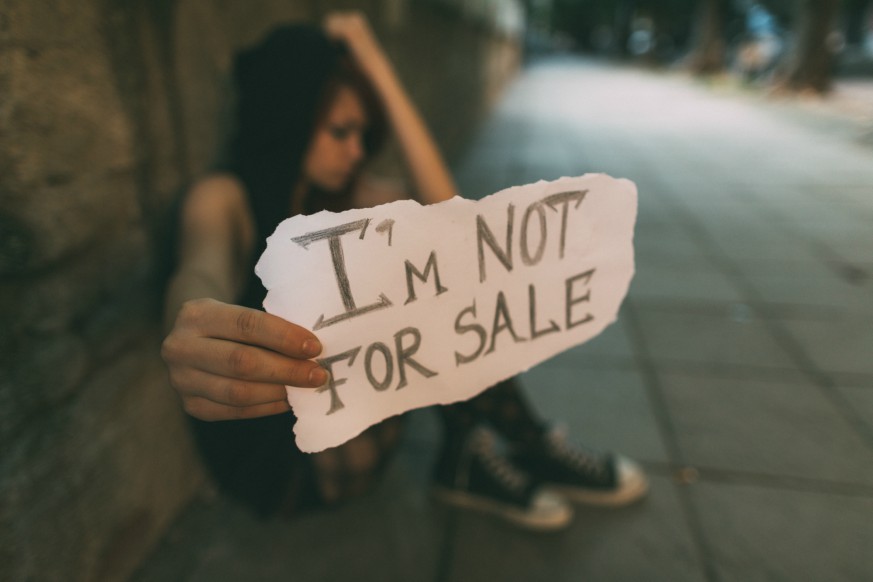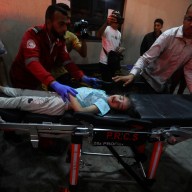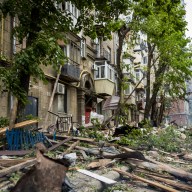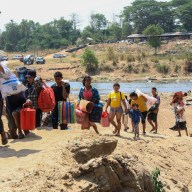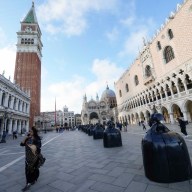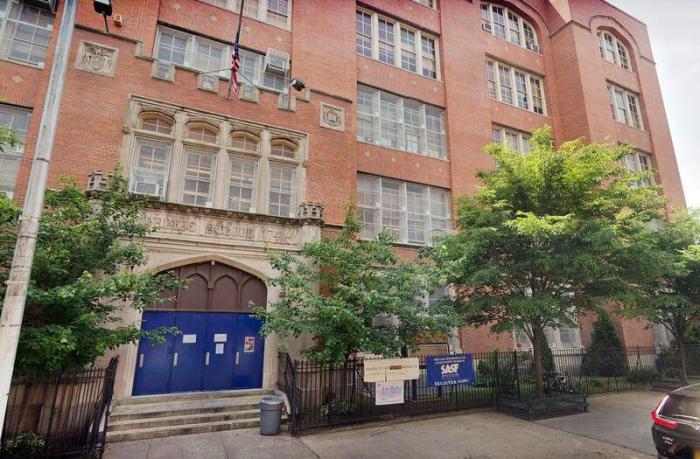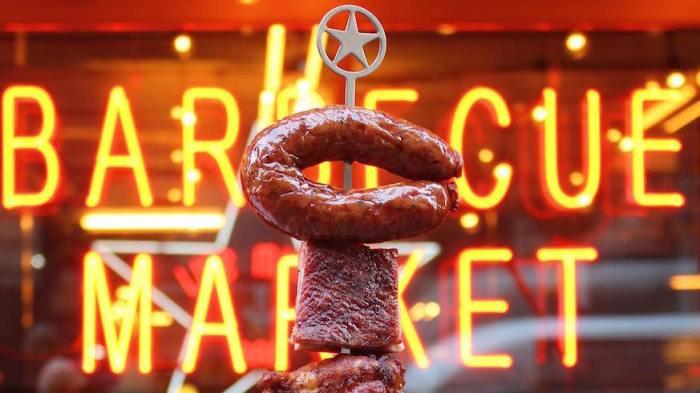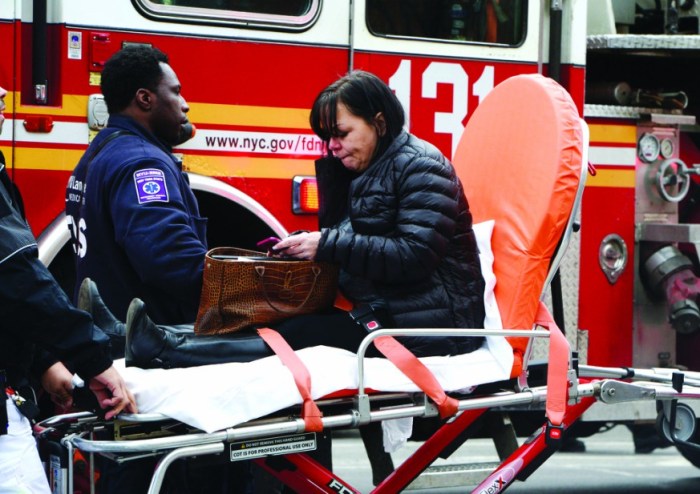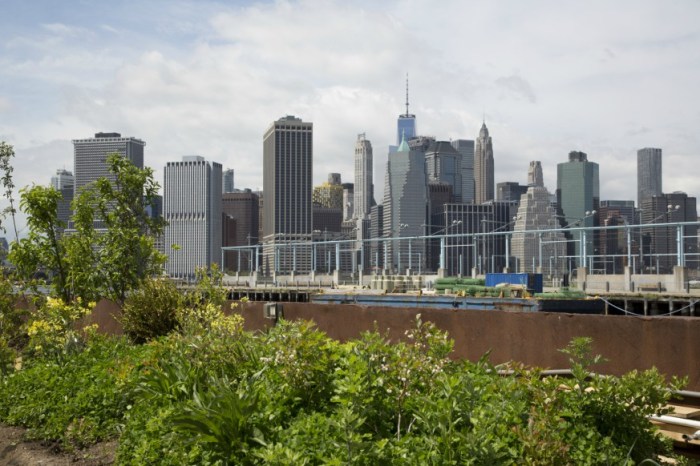For many, New York City is the land of opportunity, but for two years, it was a prison for “Ashley,” one in which she was repeatedly raped, beaten and forced into the city’s lucrative — yet relatively unknown — human trafficking trade.
“I was trafficked in all five boroughs. The experience was horrible,” Ashley, 25, told Metro last week. “I was raped by pimps, abused, beaten with a bat, a high heel and gun, threatened with a box cutter, drugged. One pimp kept me locked up in a basement with mold all over it. The only time I would go outside was when I was working.”
Ashley was able to escape six years ago, and though she remains scared of her captors, she, along with other survivors, is taking part in an anti-human-trafficking education event at Plymouth Church in Brooklyn on Sunday.
Attendees will view Danielle Rose’s award-winning documentary, “In Our Backyard,” in which Ashley appears and which investigates the trade in Brooklyn, learn how to help stop trafficking from the NYPD’s human trafficking team and more.
“We all say that if we were alive at the time of the Civil War, we’d be abolitionists, we’d fight slavery and help slaves run to freedom, but the sad fact is there are more slaves in the world now than there were during the Civil War,” said Beth Fleisher, chair of The New Abolitionists, Plymouth Church’s anti-trafficking ministry.
The New Abolitionists is a continuation of the work the church has been doing since the days of its first pastor, the renowned abolitionist Henry Ward Beecher, in the mid-1800s. In fact, if you descend a narrow staircase to the dirt-floored basement, you can even stand in what was once a key stop on the Underground Railroad.
“This work is not over, and it still needs to go on, but you can’t correct the situation unless you know the situation is there,” Fleisher said.
For Rose, making “In Our Backyard,” which tells three survivors’ stories while taking viewers on a journey of trafficking places literally in their backyard, was shocking.
“I was like, ‘What? This happens here?’ which is exactly the same question I get when I tell people what I do — and the answer I’m trying to get rid of,” she said.
Ashley hopes the film and Sunday’s event helps end some misconceptions she has faced in the aftermath of her trafficking experience.
“They think we decided to prostitute ourselves, and that life comes with rape and abuse. In their eyes, we asked for it,” she said. “Nobody knows how we fought to get out of that life. We’re not prostitutes; this is slavery. I’m here to talk about it — not a lot of females make it out of that life, clean, alive and well.”
Human trafficking red flags
According to the National Human Trafficking Hotline, these are common working, living and personal conditions to look for if you suspect someone may be a trafficking victim:
• they are not free to leave or come and go as they wish
• they are under 18 and providing commercial sex acts
• they are in the commercial sex industry and have a pimp/manager
• they are unpaid or paid very little
• they work excessive/unusual hours, are not allowed breaks or have unusual restrictions at work
• they owe a large debt they are unable to pay off
• their work or living conditions have high security measures such as opaque, barred or boarded-up windows, security cameras, etc.
• they are fearful, anxious, submissive, depressed, nervous or paranoid
• they avoid eye contact
• they become unusually fearful or anxious if law enforcement is mentioned
• they lack personal healthcare or appear malnourished
• they show signs of physical and/or sexual abuse, physical restraint, confinement or torture
• they have few personal possessions
• they are not in control of their own money, ID or passport
• they have no sense of time or their whereabouts
Human trafficking statistics
• 20.9 million: The number of human trafficking victims globally, according to the International Labour Organization (ILO).
Of that,
• 68 percent are trapped in forced labor
• 26 percent are children
• 55 percent are women and girls
• $150 billion: How much ILO estimates forced labor and human trafficking make worldwide.
• 27,000+: Total cases of human trafficking reported to the National Human Trafficking Resource Center.
• 1 in 6: Runaways reported missing in 2016 that were likely sex trafficking victims. Of them, 86 percent were in the care of social services or foster care when they ran. (National Center for Missing and Exploited Children)
• 2,480: Children and youth determined to be sexually exploited in NYC in 2016. (NYC Administration for Children’s Services and Department of Youth and Community Development)
• 45 percent of child sexual exploitation victims in NYC were exploited in hotels. (The Center for Court Innovation)
Help for human trafficking victims
Visit humantraffickinghotline.org, call 888-373-7888 or text “HELP” to BeFree (233733)
Call the NYPD’s 24-hour Organized Crime Control Bureau at 646-610-6610.

